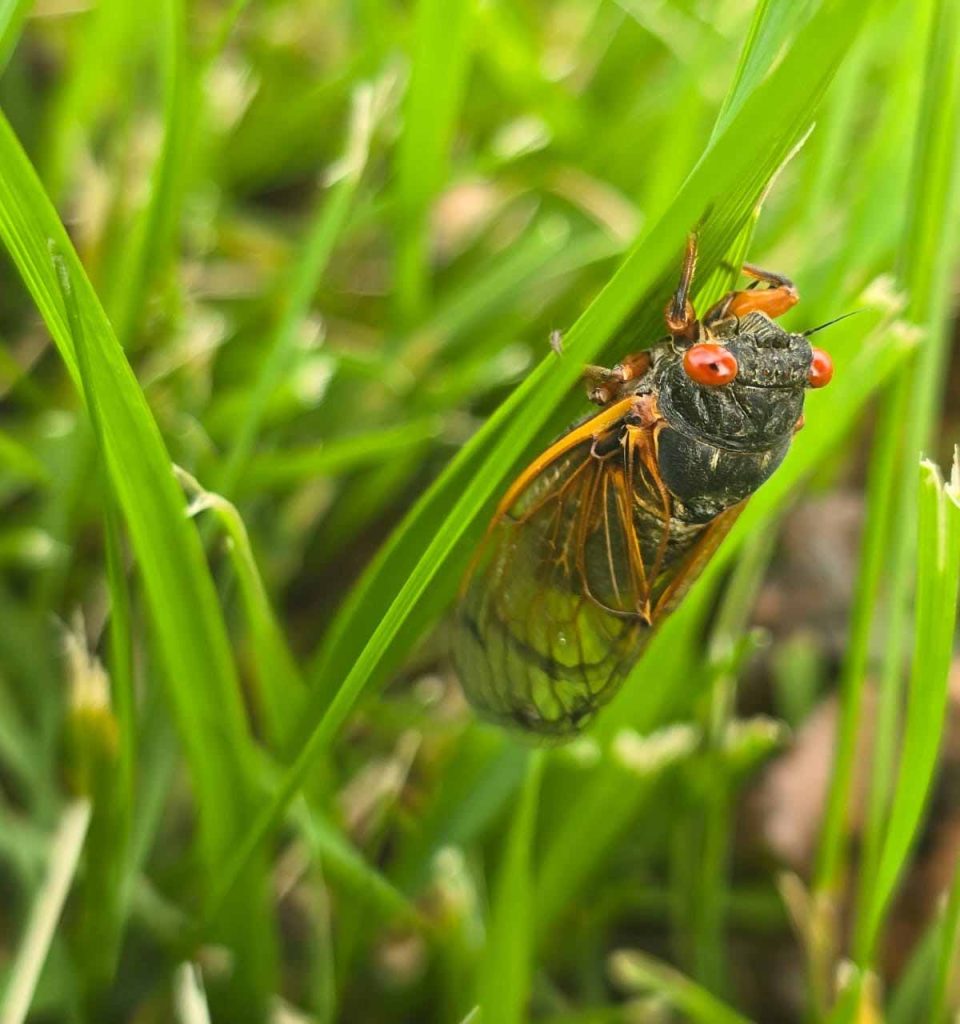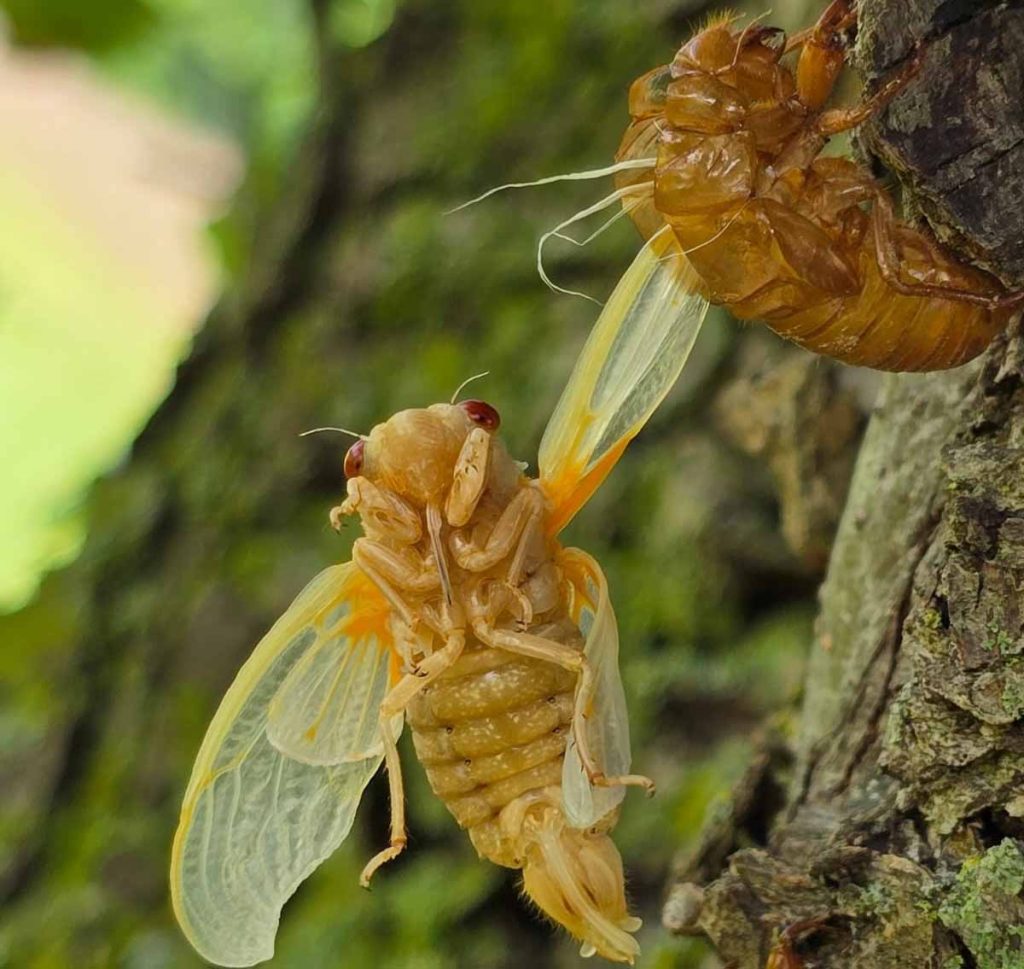At Titan Pest & Wildlife Solutions, we want to help you understand what to expect and how to prepare for the cicada invasion.
The largest brood, Brood XIX, emerges every 13 years, while Brood XIII appears every 17 years. These two broods have not emerged simultaneously since 1803 and will not do so again until 2245.
For more information on how to manage cicadas or to schedule a consultation, contact Titan Pest & Wildlife Solutions today. Our pest control team is here to help you navigate cicada season with confidence and ease.

As the warm months of 2024 approach, communities across many parts of the United States are bracing for the emergence of one of nature’s most fascinating and noisy phenomena: the periodical cicada. These insects, known for their unique life cycles and loud mating calls, are set to emerge in vast numbers, creating a spectacle that is both intriguing and, for some, a bit overwhelming.
What Are Cicadas?
Cicadas are insects belonging to the order Hemiptera, known for their large eyes, transparent wings, and distinct buzzing sounds. There are two main types of cicadas: annual cicadas, which appear every year, and periodical cicadas, which emerge in massive numbers every 13 or 17 years. This year, we will witness the emergence of a brood of 17-year cicadas, making it a significant event for entomologists and nature enthusiasts alike.
The Life Cycle of Cicadas
Periodical cicadas spend most of their lives underground as nymphs, feeding on the sap from tree roots. After 17 years, they emerge synchronously in large numbers to molt, mate, and lay eggs. This synchronized emergence helps overwhelm predators, ensuring the survival of the species. Once above ground, adult cicadas live for about four to six weeks, when males create loud calls to attract females. After mating, females lay eggs in the bark of trees, and the cycle begins anew as the hatched nymphs drop to the ground and burrow in.
The Impact of Cicadas
- Noise Pollution – One of the most noticeable impacts of cicadas is the noise they create. Male cicadas produce loud, buzzing calls to attract females, reaching up to 100 decibels. This noise can be disruptive, especially in areas with high concentrations of cicadas.
- Tree Damage – While cicadas do not directly threaten humans or pets, their egg-laying habits can cause damage to young trees and shrubs. Females cut slits into small branches to lay their eggs, which can weaken or kill the affected branches. Mature trees usually withstand this damage, but young or newly planted trees might suffer more significantly.
- Increased Wildlife Activity – The emergence of cicadas provides a temporary food source for many animals, including birds, small mammals, and even some reptiles and amphibians. This increased activity can affect local ecosystems and wildlife behaviors during the cicada season.

Preparing for the Cicadas
At Titan Pest & Wildlife Solutions, we recommend several steps to help you prepare for and manage the presence of cicadas:
- Protect Young Trees and Shrubs – If you have young trees or shrubs, consider covering them with fine netting to prevent cicadas from laying eggs in the branches. This is especially important for newly planted or delicate trees.
- Plan Outdoor Activities – When planning outdoor events or activities, be mindful of the emergence of cicadas. The noise can be quite loud, and the sheer number of cicadas might make outdoor spaces less enjoyable during peak emergence.
- Educate and Inform – Educate your family and community about cicadas. Understanding that these insects are harmless to humans and pets can help reduce unnecessary fear and anxiety.
- Consult Professionals – If you have concerns about the impact of cicadas on your property, consult with professionals like Titan Pest & Wildlife Solutions. We can provide advice and assistance in protecting your landscape and minimizing the disruption caused by cicadas.
Effective Cicada Cleanup
After the cicadas hatch, they leave many exoskeletons, creating a mess in yards and outdoor spaces. These shells, while harmless, can be unsightly and may accumulate in large numbers, especially in areas with high cicada activity. Effective pest control cleanup is essential to restore your property’s aesthetic appeal and prevent any potential issues related to the buildup of organic material.
At Titan Pest & Wildlife Solutions, we recommend promptly collecting and disposing of these shells to maintain a clean environment. Using rakes or leaf blowers can help gather the exoskeletons efficiently. Our professional pest control team is equipped to handle the cleanup for those looking for a hassle-free solution, ensuring your outdoor spaces are quickly returned to their pristine condition.
HVAC and Ventilation Impacts
At Titan Pest & Wildlife Solutions, we offer comprehensive services to protect your HVAC and ventilation systems from cicada impacts. We can install fine mesh screens over vents and outdoor units to prevent cicadas from entering and causing blockages and set up temporary barriers to reduce debris accumulation. Our team provides regular inspections and thorough cleaning services to remove cicada shells and debris, ensuring your system runs efficiently.
If your HVAC system is affected, we offer emergency response to assess and resolve issues quickly. Our experts provide tailored advice and educational resources to help you maintain your systems during the cicada season. Choosing Titan Pest & Wildlife Solutions ensures your HVAC and ventilation systems remain protected and efficient throughout the cicada emergence.
Embracing the Phenomenon
While cicadas can be noisy and somewhat disruptive, they are also a unique and fascinating part of our natural world. Their emergence reminds us of the intricate cycles of nature and the resilience of these remarkable insects. At Titan Pest & Wildlife Solutions, we encourage you to take this opportunity to learn more about cicadas, appreciate their role in the ecosystem, and enjoy the spectacle of this rare event.

